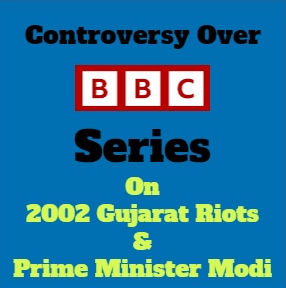

By A Special Correspondent
First publised on 2023-01-20 09:37:19
The airing of the first part of the two-part series 'India: The Modi Question', produced by the BBC as a "rigorously researched" series "according to highest editorial standards" has sparked a controversy. After the Indian community in the UK objected to the series and the way events were depicted by the BBC, the Indian government issued a statement that said that the series was biased, lacked objectivity and displayed a continuing colonial mindset. The series is an investigative piece that examines the role of Prime Minister Narendra Modi (who was then the chief minister of Gujarat) in the post-Godhra communal riots in Gujarat in 2002 which left more than 1000 dead.
Apart from their own investigations, the BBC quotes former British foreign secretary Jack Straw as having said that the UK government had sent a team to Gujarat to find out what actually happened and according to Straw, the team produced a "thorough report".
But the fact is that the Supreme Court of India had appointed a Special Investigating Team (SIT) to go into specific incidents and find out whether Modi was personally involved in directing the administration to turn a blind eye to rioting and killing of Muslims during the riots. Relying on the report of the SIT, which the court said was "backed by firm logic, expositing analytical mind and dealing with all aspects objectively" the Supreme Court had absolved Modi of all charges of personal involvement. It had, in fact, rejected the charge of 'larger conspiracy' in the riots. The matter should rest there after the Supreme Court decision.
But the Gujarat riots were a blot on communal harmony in India and will not go away. Neither will the accusation that the Gujarat government, and by that token Modi himself, was directly involved. But, as the government has said, the purpose and the agenda behind the series, especially now after the Supreme Court clean chit, is questionable and so is the bias. But apart from criticizing the series and making its displeasure known or banning it from being aired in India (which serves no purpose in the age of internet as it will be available online soon) there is very little the Indian government can do. It has to learn to live with such films and series, as well as essays, dissertions, shows, books and plays on the Gujarat riots.











